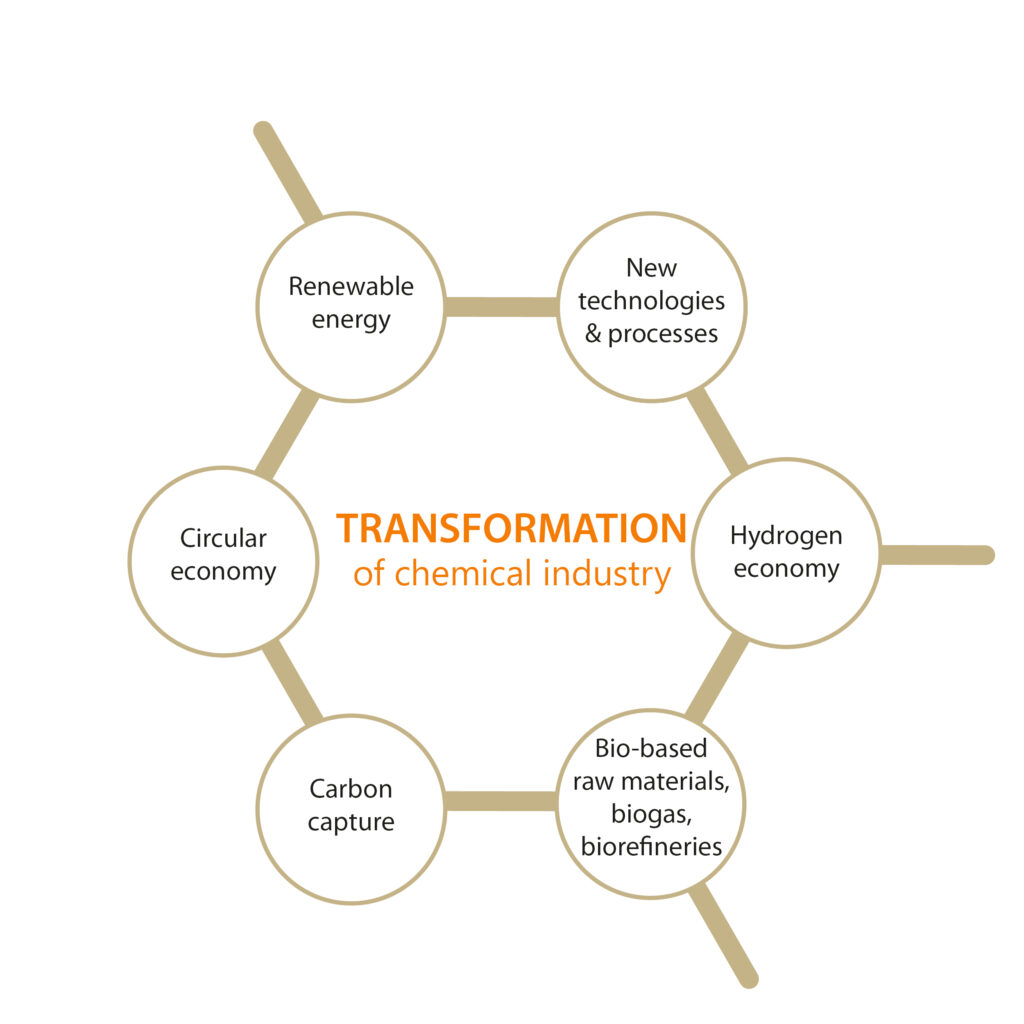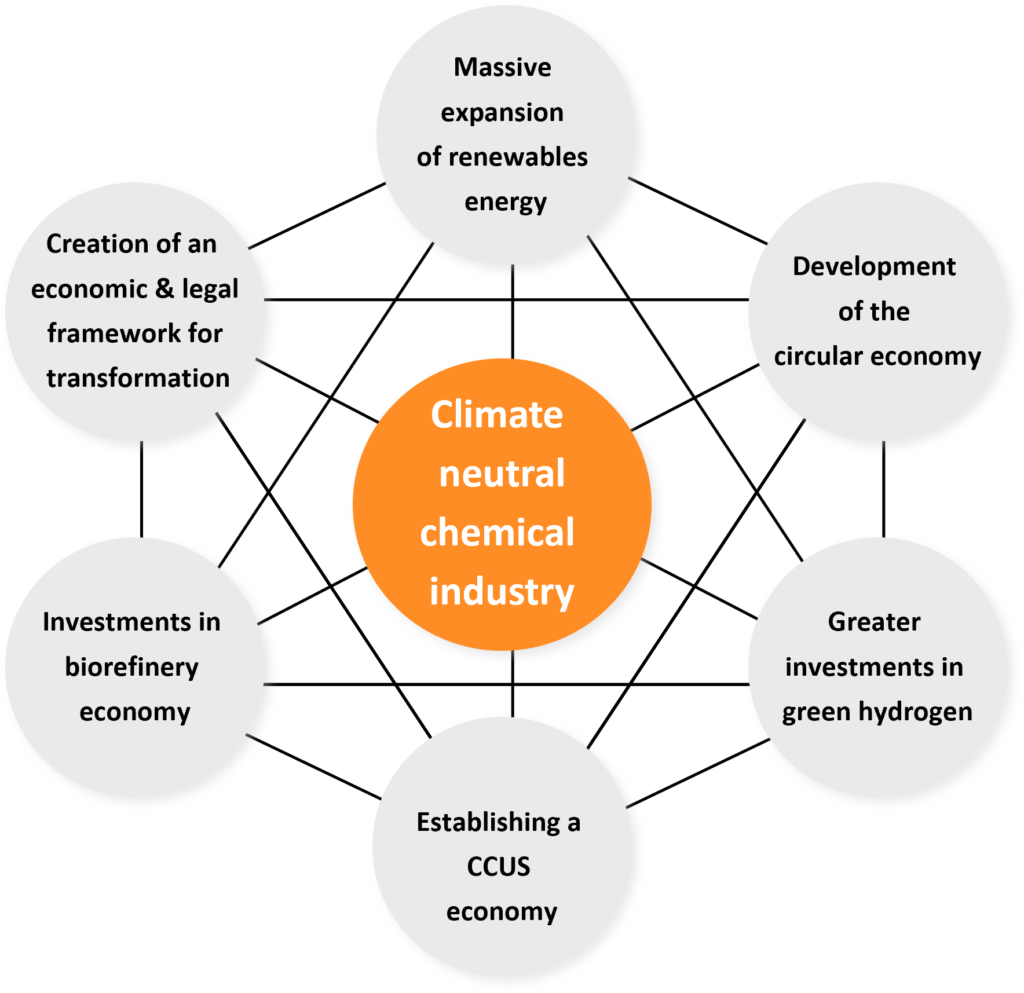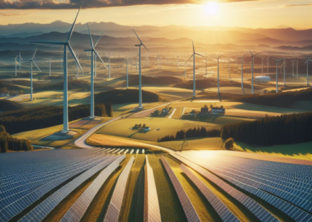Transformation of the chemical industry toward climate neutrality
Over the past few months, we have taken you on an informative journey through the chemical industry. It has become obvious that there is no alternative to the transformation of the chemical industry towards climate neutrality. Six important fields of action on the path to a climate-neutral chemical industry were defined:

A survey by SVP revealed that, particularly, renewable energies are currently seen as the field of action where the need for action is most urgent. A successful transformation could be jeopardized if there is not enough renewable energy at competitive prices, as it forms the basis for the other fields of action.
We have seen that the expansion of renewable energy in Germany alone has huge dimensions, and that electrification is the key to climate neutrality. According to the German Chemical Industry Association (VCI), the demand for electricity will multiply from the current level of around 53 terawatt hours (TWh) to 685 TWh. This corresponds to eleven times the current electricity consumption of the German chemical industry and even exceeds the total electricity consumption in Germany (2022: 484 TWh, source: Federal Network Agency). VCI calculations show that the industry is able to achieve climate neutrality by 2050. However, this requires a high degree of electrification of processes and the use of large amounts of electricity from renewable sources. Here, the circle closes again.

However, the expansion of renewable energy is not progressing as it needs to in order to significantly accelerate the transformation of the chemical industry. The failures of the past decades cannot be made up for within a very short time. We have seen that the chemical industry is already carrying out numerous initiatives and projects to integrate renewable energies into its process landscape with the aim of meeting climate targets. However, this is far from sufficient. Major efforts and investments are still needed, as well as corresponding political framework conditions, so that the “changes” can be realized under economic conditions.
The chemical industry in Germany and the EU is facing international competition. Energy-intensive companies, in particular, are burdened by persistently high energy prices in the EU. As a major energy consumer the basic chemicals industry is dependent on a reliable supply of electricity at competitive energy prices and is directly affected by possible supply uncertainty and future cost increases. Due to rising energy costs, there is currently an increasing tendency for energy-intensive basic chemicals to move abroad, i.e. to regions with lower energy prices and better framework conditions. However, a migration of basic chemicals jeopardizes numerous value chains in the chemical industry within Europe. This places the industry in a risky dependency on foreign countries.
In addition to the key topic of renewable energy, the circular economy was also named as a pressing area for action in SVP’s survey. An established circular economy saves material resources and reduces the use of energy, as products can be kept in the cycle for longer. Securing raw materials at home must become one of the most important prerequisites to ensure that the energy transition will succeed and the path to climate neutrality will be taken successfully. A circular economy creates the necessary access to important materials and resources that are already in the country. According to the Boston Consulting Group, investments of 50 to 60 billion euros are needed by 2040 to achieve a 75-percent recycling or circular economy for many materials in Germany. However, we are still a long way from achieving this goal.
In SVP’s view, these are the urgent recommendations for action to make sure that the transformation to a climate-neutral chemical industry will succeed:
Action of fields for transforming the chemical industry

The journey to a climate-neutral chemical industry has long since begun. It will pick up speed in the coming years and will certainly confront us with surprising issues. We at SVP will continue to accompany you on these issues.

Dr. Ronald Hinz, MI Senior Expert

Dr. Volkhard Francke, MI Senior Expert







